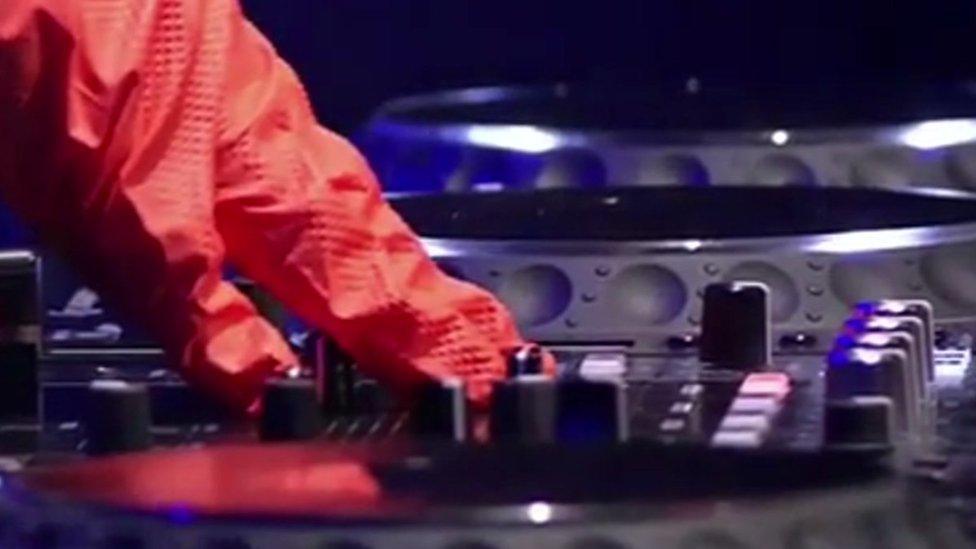DJ Paulette: 'There's still a long way to go for female performers'
- Published
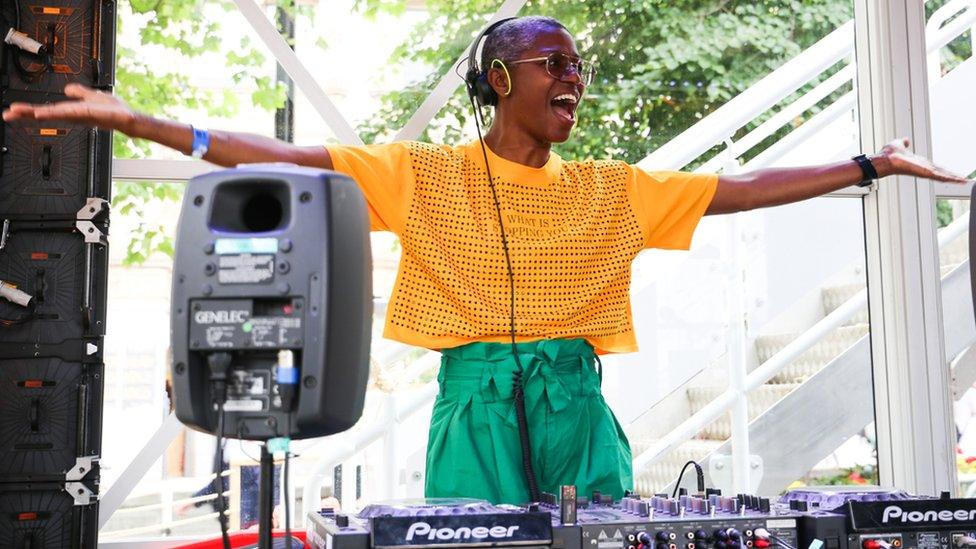
DJ Paulette said she does not intend "to give up DJing ever"
DJ Paulette, who has spent three decades at the top of the DJing world, has said her success and that of other women like her has not stopped them routinely facing discrimination and being paid far less than their male counterparts.
DJ Paulette, was one of only two women to have had a monthly residency at Manchester's legendary club, The Hacienda, has played to thousands in Ibiza and Paris, been a regular at renowned venues like Heaven and Ministry of Sound and won a lifetime achievement award from a music magazine.
However, the 57-year-old has revealed in her new book, Welcome To The Club: The Life and Lessons of a Black Woman DJ, that her success has come with an uphill struggle against a male-dominated industry.
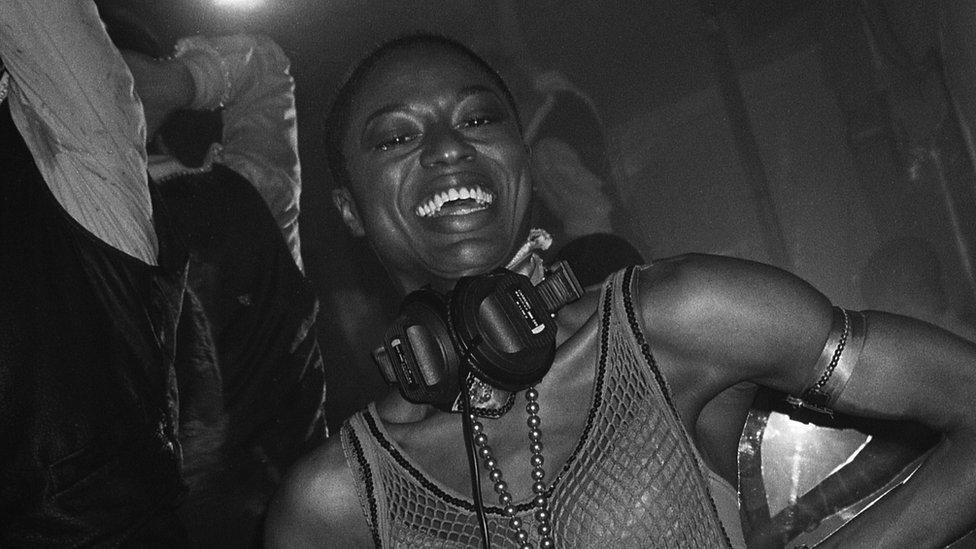
DJ Paulette said there "wasn't a place for a black female DJ on the straight scene" when she started out
She said she has spent her life "kicking down doors" and owed much to the initial support of Manchester's gay community, who came out in force as she found her DJing feet at the Hacienda's pioneering night Flesh in the 1990s.
"DJing was really a boys club in the 90s," she said.
"I don't think I'd have become a DJ or that my trajectory would have been anywhere near as pronounced or quick if I'd have tried to DJ on the straight scene.
"There wasn't a place for a black female DJ on the straight scene."
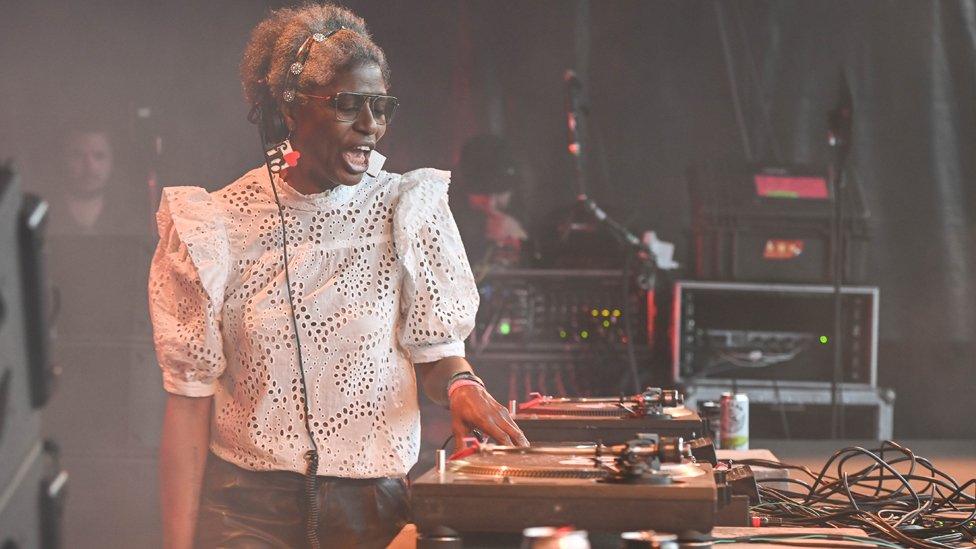
DJ Paulette said she was "blessed to have a won a lifetime achievement award from Top DJ Magazine"
DJ Paulette said female DJs "weren't even getting on the posters or the flyers" when she started out, "so for me, DJing on the gay scene meant they were open and accepting to the difference".
"It was magic, absolutely magic," she said.
"I didn't even know DJing was a job."
But after 30 years of that work, she said she still had not gained financial parity with male DJs at her level.
She said in a recent offer of work, her agent gave the price and terms and conditions and was told "we aren't paying that and she'll never work again".
"It wasn't a ridiculous amount of money to ask for," she said.
"I don't ask for mega bucks.
"People will pay a male DJ double [what I ask for] without flinching."
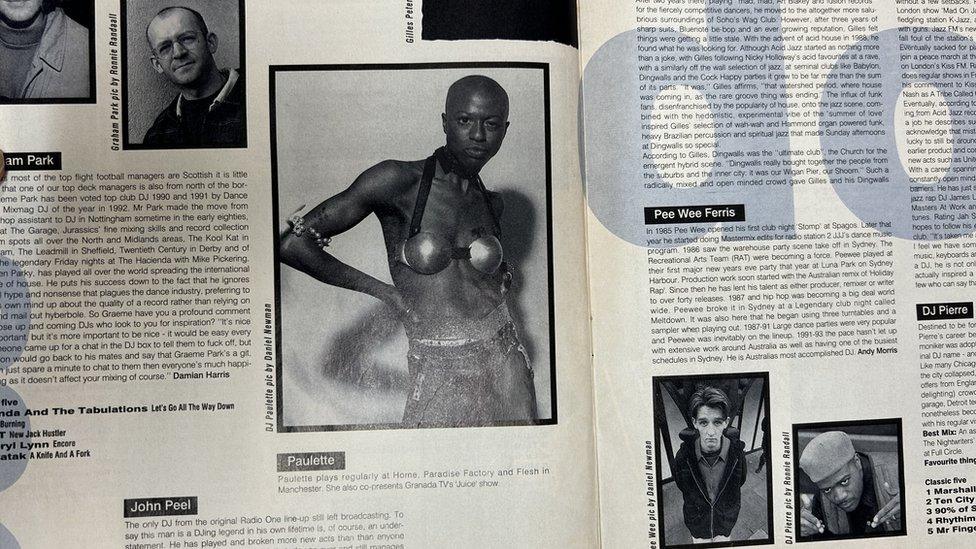
DJ Paulette has been listed as one of top 100 DJs in the world
She said there had been some "positive change" in recent years, with big names like Blessed Madonna and Honey Dijon coming to the fore, but it was still the case that only a handful of female DJs made it big.
"I'm blessed to have a won a lifetime achievement award from DJ Magazine," she said.
"But there are still only 20 women in [their] top 100.
"There's still a long way to go."
She said she decided to write her autobiography after losing almost a year's worth of bookings in a few days when the Covid-19 pandemic hit in 2020.
"What was important for me [when] writing the book was to make play for the very human cost to the pandemic that has not been addressed," she said.
"I lost my mind. In no uncertain terms, I lost my mind.
"I don't know what happened, but I flipped out.
"And the thing that kept me going through it was the music."
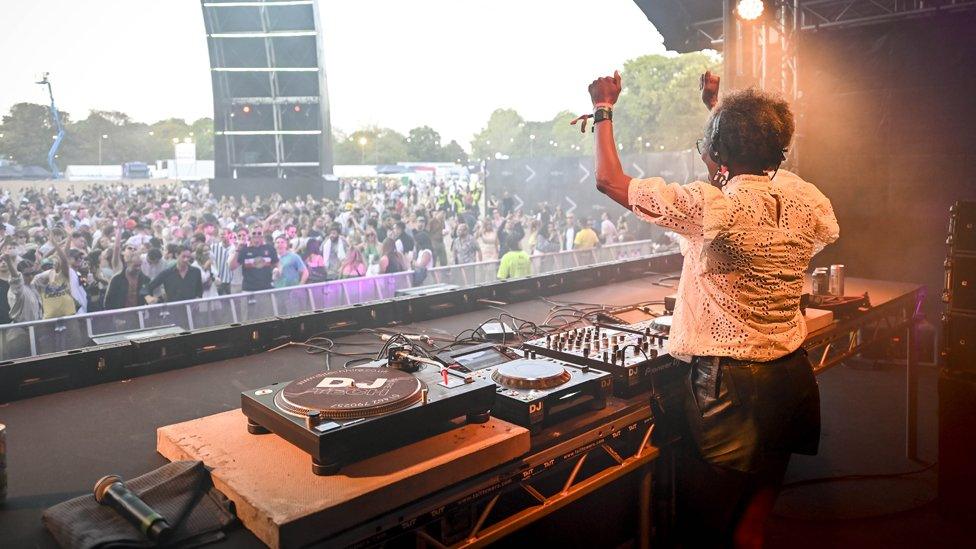
DJ Paulette said bookers would pay her male counterparts double what she gets "without flinching"
She said livestreaming DJ sets, particularly through the United We Stream GM website, was "a lifesaver" during that time.
"Music and community is really important to people," she said.
"And what we do in music and hospitality is really important to the community."
She said it was that sentiment that keeps her going back to her turntables and will do for the foreseeable future.
"I don't intend to give up DJing ever," she said.
"We've just lost Annie Nightingale.
"When I see someone like her who has endured until her mid-80s, I think 'I want to be like her when I grow up'."
DJ Paulette's full interview is available now on BBC Sounds.

Why not follow BBC North West on Facebook, external, X, external, and Instagram, external? You can also send story ideas to northwest.newsonline@bbc.co.uk, external
Related topics
- Published28 July 2022
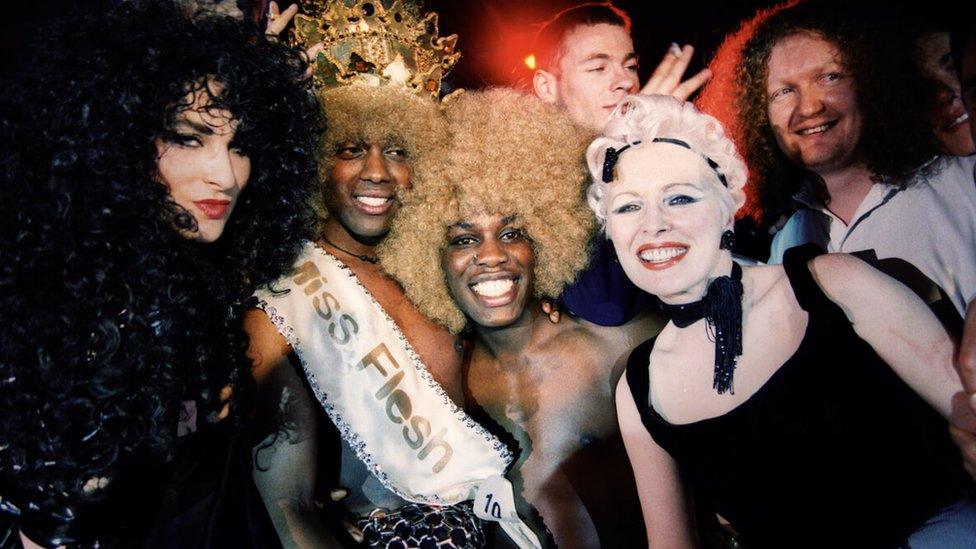
- Published17 April 2020
